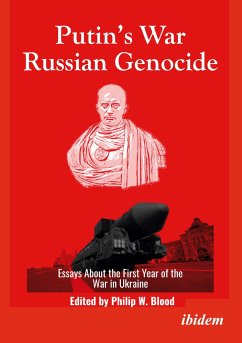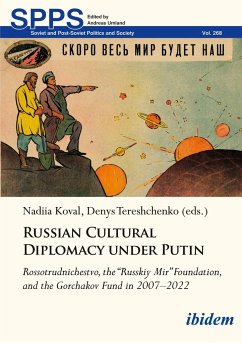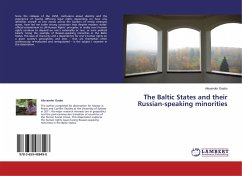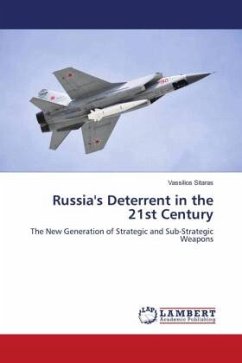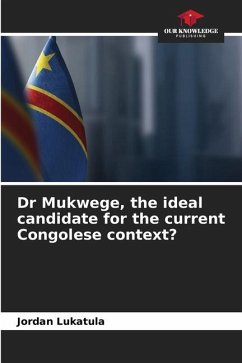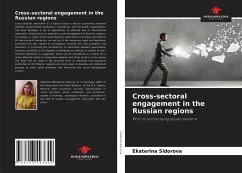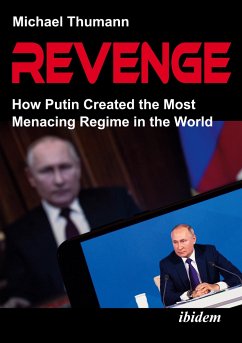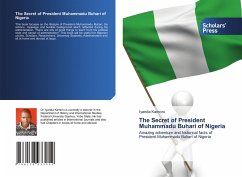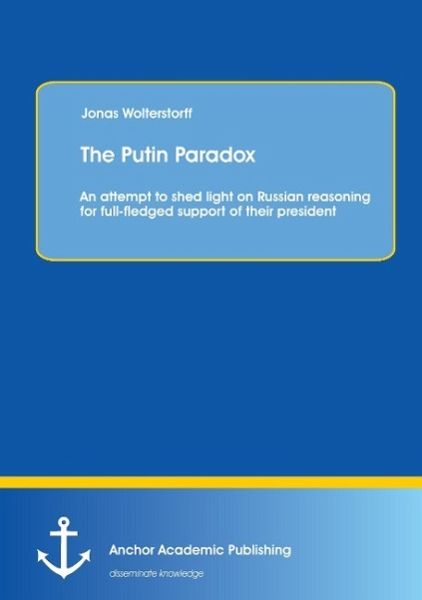
The Putin Paradox: An attempt to shed light on Russian reasoning for full-fledged support of their president

PAYBACK Punkte
0 °P sammeln!
Russia is an enigma. In the western hemisphere, respectively the countries of the European Union and USA, it produces a lot of suspicion and resentments. Its vast spatial dimensions, in terms of size; its controversial history and its stubborn focus on sovereignty, when it comes to foreign policy and the international community, are the most prominent sources for difficulties of understanding. In addition, the Russian people liketo sustain a hint of mystery themselves, in claiming that no other nationality can understand them. Apart from stereotypes and prejudices about typical Russian people ...
Russia is an enigma. In the western hemisphere, respectively the countries of the European Union and USA, it produces a lot of suspicion and resentments. Its vast spatial dimensions, in terms of size; its controversial history and its stubborn focus on sovereignty, when it comes to foreign policy and the international community, are the most prominent sources for difficulties of understanding. In addition, the Russian people liketo sustain a hint of mystery themselves, in claiming that no other nationality can understand them. Apart from stereotypes and prejudices about typical Russian people and characteristics, there are a handful of assumptions one encounters that cling to public opinion about Russia s political landscape.
This work will treat the Russian political system as a contemporary phenomenon. Let us assume all of those assumptions are held true; why does the Russian population still accept those deficits? The fact that the circumstances can be that unpromising, and not many people try tochange something, leaves many spectators speechless. Where does the popular support of society for President Putin come from? Which is the source of stability? Why were the civil opposition movements in 2012/2013 mostly ignored by the majority? What are the reasons for the lack of proneness to protest? Do Russians perceive the political system differently; do they maybe put another focus? Or do they simply fear oppression?
The central question, which will be answered, consequently reads "Why does the Russian population supports Putin s political system and regime?"
This work will treat the Russian political system as a contemporary phenomenon. Let us assume all of those assumptions are held true; why does the Russian population still accept those deficits? The fact that the circumstances can be that unpromising, and not many people try tochange something, leaves many spectators speechless. Where does the popular support of society for President Putin come from? Which is the source of stability? Why were the civil opposition movements in 2012/2013 mostly ignored by the majority? What are the reasons for the lack of proneness to protest? Do Russians perceive the political system differently; do they maybe put another focus? Or do they simply fear oppression?
The central question, which will be answered, consequently reads "Why does the Russian population supports Putin s political system and regime?"





